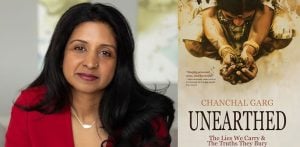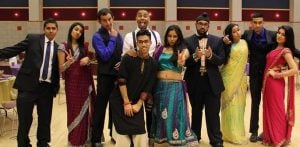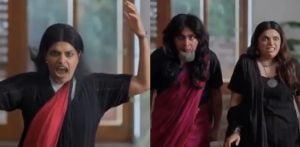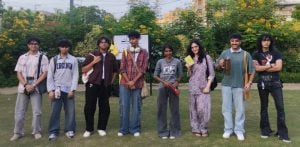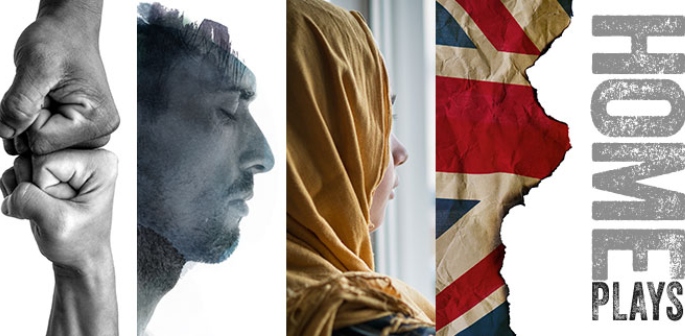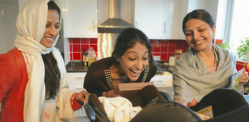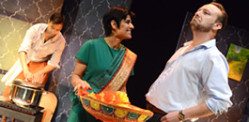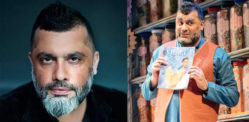"We’ve still got plenty of gender and racial battles to fight"
Kali Theatre celebrated its 30th birthday and return to live performances with a showcase of six cutting-edge plays, titled HOME.
The company has always celebrated female writers from a South Asian background and these pieces are no different.
Running between October 12-16, 2021, the plays reimagine the idea of ‘home’ from the perspective of South Asian women.
The performances at Kali Theatre address themes of belonging, colonialism, terrorism, and much more.
Hence, the playwrights hope to achieve an eye-watering display of what it means to call Britain ‘home’ in 2021.
Participating in the iconic event are four established playwrights, including Sonali Bhattacharyya, Naylah Ahmed. Alia Bano and Satinder Chohan.
Two emerging writers, Sarah Isaac and Maeve Scullion were also identified through the DISCOVERY programme at Kali Theatre. This is an illustrious scheme to scout and develop new female writers.
With such a growth of South Asian creatives, the importance of acknowledging these artists is imperative.
This is why the Kali Theatre Artistic Director, Helena Bell, prides herself on showcasing the talent of South Asian women.
Having an Indian father and a white British mother, her extensive work with Desi writers has been a way for her to encounter and research aspects of her heritage.
Although, it has been a pathway for audiences to recognise the elite ability of an underrepresented community.
One of those playwrights with this brilliance and finesse is British Asian writer Satinder Chohan. She is exhibiting her evocative play, Empire of the Mind (Empire) at Kali Theatre.
Raised in Southall, London, Satinder is an exhilarating writer. She has achieved great success with her plays KabaddiKabaddiKabaddi and Zameen.
Made in India is another for which she won OffWestEnd.com’s ‘Adopt A Playwright Award’ and a ‘Best Production ACTA Award’.
As Satinder gears up to release her novel, Pind, DESIblitz spoke exclusively with both her and Helena about the impact of HOME and South Asian creativity. This includes from the perspective of Kali Theatre.
Satinder Chohan and South Asian Representation
Tell us about your background and writing development?
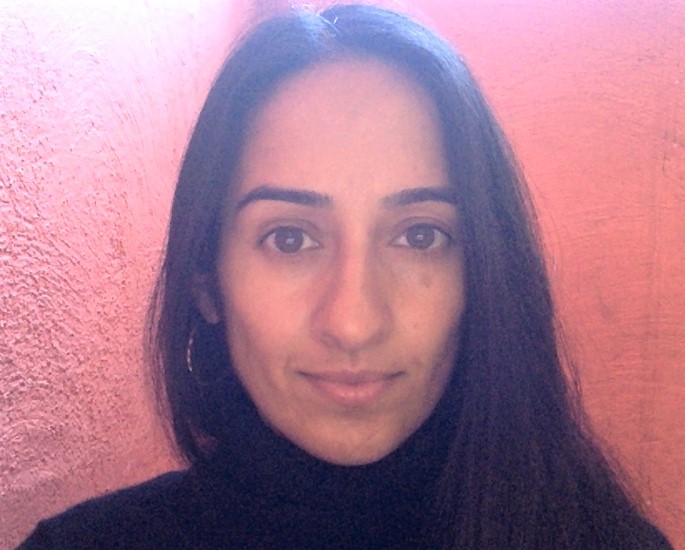
I’m a British Punjabi Sikh female writer from Southall, West London, whose writing is mostly inspired by my immigrant family, community, and culture.
I previously worked in journalism and documentaries as a researcher but always wanted to write creatively.
I never had the confidence till my early 30s. Since then, it’s been a very steep learning curve but incredibly fulfilling (if not financially!).
“I’ve written several plays including my first, Zameen, about the struggles of farmers in Punjab.”
I’m also diversifying into audio dramas, fiction, and film. Immigrant, working-class communities like ours have so many stories to tell and it’s vital we tell them before our stories disappear.
How do you think the HOME festival will impact South Asian creatives?
I think the best thing about the HOME festival is the platform it gives to mid-career female South Asian writers like myself.
Theatre is a tough, unforgiving profession in which to make a living. So, a festival like this focuses on the work of writers who are still forging their way but are no longer seen as hot, new emerging writers.
Kali Theatre is giving us crucial time, space, and invaluable support to continue putting our stories out there, at a point where we can easily fall into an industry void.
I definitely think there should be more HOME type events for mid-career South Asian creatives like this.
HOME also reminds us that whatever struggles we have to endure in a wider industry, theatre companies like Kali always try to look out for us.
For me at least, this festival is akin to coming home.
What was the influence behind ‘Empire of the Mind’?
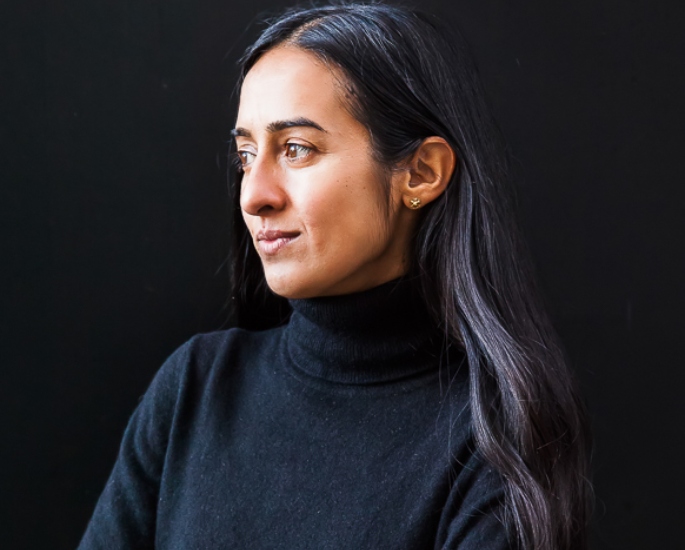
As a child of immigrants, my conflicted British Asian identity stems from British collective amnesia around history.
The way our immigrant, colonised histories have been suppressed.
The way the darker, more genocidal, destructive, rapacious side of British imperial history has been ignored in our schools and on our stages.
Institutionally denied and spun into a more glorified history. So, I wanted to address Empire in a way that doesn’t shy away from its ugly, violent history.
It’s a play that attempts a more grown-up, honest debate about the Empire and immigration.
With Empire of the Mind, I am trying to explore more about who we are and how we relate to one another in 21st century Britain – in a way not possible growing up as a child of immigrants.
I first had this idea back in 2010 for a writing residency.
“Back then I didn’t really have the dramatic tools for such an epic subject.”
Having almost visited there, I was fascinated with the Andamans Islands (the first half setting of the play) and knew it had this incredible history.
A penal colony that was also an island paradise and prison of sorts for the Britishers, not just for the Indian convicts sent there.
My idea always felt too dark and heavy, until I recently found out about the British imperial dream collectors. The missing and very inspiring creative piece I needed for the play.
In 1931, British anthropologist Charles Seligman contacted a team of officials across the Empire.
From India, Malaya, China to Nigeria, Uganda, Australia, and the Solomon Islands, he wanted to collect dreams from colonial ‘natives’.
Within prevailing hierarchies, the simple ‘native’ mind was still perceived as ‘alien’, ‘primitive’, and ‘savage’.
Natives were believed to lack the deep inner lives of white superiors. Seligman wanted to see if (Freudian) dream concepts and symbols were universal or based on race and culture.
I thought this dream element would be a fascinating road into Empire and my play – and so it’s proving as I continue developing the piece.
What do you hope the audience will leave the theatre thinking/feeling?
For now, I hope the audience will leave the theatre asking more questions about the British imperial legacy. An imperial world in which the British at one time believed people of different races dreamt differently.
I hope the audience will explore immigrant and colonised histories for a more balanced view of what the British did during the Empire.
I also hope an audience will better understand the link between Empire and modern immigration in this country.
Rather than allowing the continued scapegoating of immigrants for ‘coming to this country and taking our jobs’.
Especially when the British colonised and depleted the countries of so many of those immigrants in the past.
How did it feel to work with Poonam Brah and what did you learn?

Poonam is easily one of my favourite directors to work with! She inspires and pushes me and I love our creative conversations that last for hours.
It was a real joy to work with her on an early workshop of the play. We had such talented actors too.
A dream cast of sorts with Asif Khan, Peter Singh, Goldy Notay, Krupa Pattani, and Ulrika Krishnamurthi.
“We started off with the actors overwhelmed by some quite dense historical material.”
Then, Poonam and the actors found beautifully creative ways through the material that exploded the idea for me.
She’s a smart, edgy, hugely talented director and I would love to continue working on theatre and film projects with her in the future.
What does it mean to be South Asian and female in modern Britain?
A huge question – I’m not sure I know the answer! For me, the double marginality of being South Asian and female presents many political, social, economic, and creative obstacles in modern Britain.
But it’s also a source of double empowerment too. South Asian women have come a long way through so many struggles.
We must never ever forget those who came before us – our great-grandmothers, grandmothers, mother.
They’re the ones who really struggled through incredibly traumatic experiences to migrate and settle here.
Fighting pioneering battles that gave us later generations a voice, choices, freedoms, and the confidence to be who we are in Britain today.
I’m in awe of some of the younger South Asian women – they demonstrate kickass confidence I never knew growing up.
“We’ve still got plenty of gender and racial battles to fight but we’re so much stronger and better equipped to take those. Because of all those strong, inspiring women who came before us.”
Why is theatre an important medium to explore such issues?
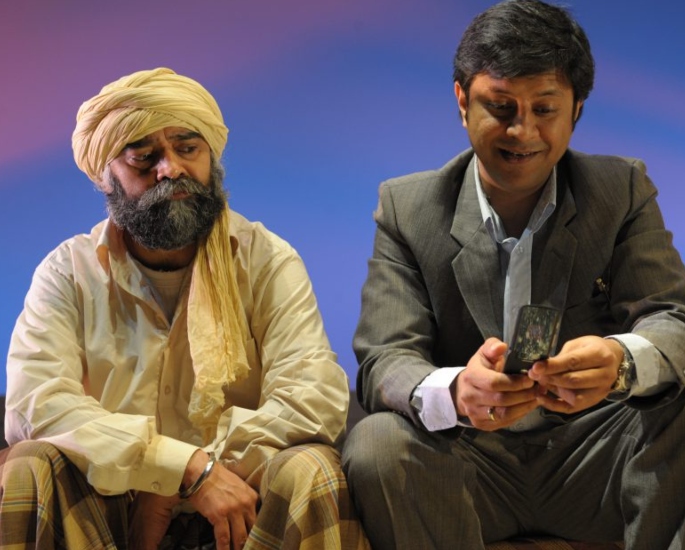
As a child, devouring books at the local library at the top of my grandparents’ road, I always wanted to be a novelist, not a playwright.
I had absolutely no theatre background. When I began writing, I had probably been to the theatre only a few times before I wrote Zameen.
But over a decade or so on, as much as I still love the idea of being an introverted, reclusive novelist, there is a part of me that also loves the collaborative aspect of theatre.
From a strong community background myself, I think theatre is the most community-driven of all art forms. As a writer, I collaborate with a community of other creatives.
Then we share our work with an audience in a LIVE, communal space.
Theatre-making is infused with community and collaboration and there is something so immensely powerful about the stories created and shared through that.
“It also gives a voice and platform to tell these stories about unrepresented cultures and communities.”
A strong voice that isn’t compromised in the way it might be in TV or film. It allows creatives to be political and poetic, to offer up different worlds in a LIVE space.
Worlds an audience might not know or understand in a dramatically present way, giving the power to make an audience think about their own lives and the lives of others.
Can you tell us more about your upcoming novel, ‘Pind’, and the motivation behind it?
My labour of love novel isn’t quite upcoming as much as still getting started.
I’m finally keeping up momentum but it’s a big idea that needs a lot of creative headspace. I haven’t been able to give it previously. So, it will take time yet.
I received Arts Council funding to work on transitioning playwriting skills to fiction ones and I’m using Pind to explore that.
The novel idea I had for – yikes – two decades! I feel a little more confident about my playwriting which I will continue consolidating. I feel it’s time to focus on fiction.
For Pind, I want to write a layered novel, exploring Punjabi Sikh immigrant lives in a global village.
Inspired by my grandparents and parents’ generations and those still arriving, Pind is about Punjabi immigrants who dream of better lives, yet still, long for a world left behind.
Helena Bell and The Importance of Theatre
What was the motivation behind the HOME Festival?
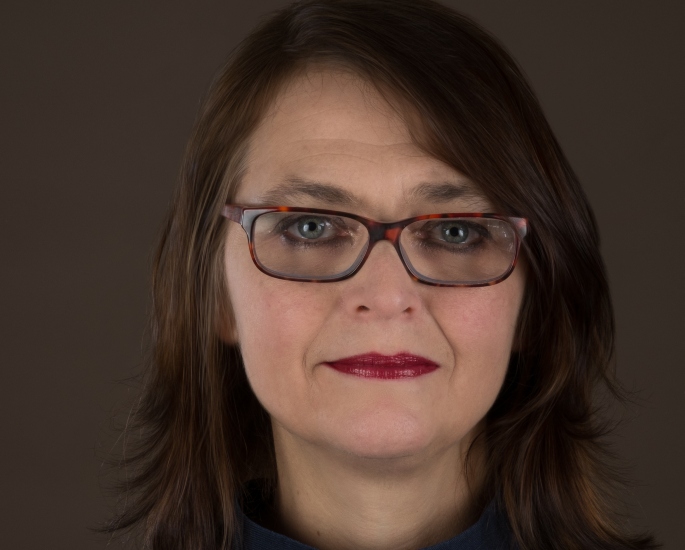
The HOME programme is scheduled every two years to give a platform to mid-career, established writers.
Loosely based on a theme, around five writers are invited to submit a short treatment for the play they would like to write.
They are offered a core commission and nine months of support. In consultation with Kali Theatre, the writers select a dramaturg and director to work with them to develop their script.
After six months (and following completion of two drafts), we provide a closed two-day workshop with actors and directors.
This is to move the piece on to a rehearsal draft after which the festival showcase public and staged readings in London.
In 2018, we produced plays around the theme of ‘war’ and in 2023 we will produce plays set internationally.
“The HOME plays were originally conceived around the time of Brexit.”
We were fascinated to see what our writers were thinking about the UK and to see what issues were preoccupying them.
Then the pandemic happened and we have had to postpone the festival for over 18 months.
Yet, the themes are just as riveting and still relevant. With everything from the environment and LBGTQ issues, to nationhood, colonialism, immigration, and terrorism.
The festival programme is important in that it helps mid-career writers get started on a new play with no strings attached. (So many new writing schemes cater only for the new and the young).
The ambition for Kali Theatre is that every festival piece will find a home somewhere and we invite industry experts as well as the general public to the showcases.
We give the writers a core commission and support them with collaborators they want to work within a nurturing and supportive team.
We hope that we provide a creative and sympathetic environment where their work can thrive and eventually be produced either by Kali or other theatres/tv/film companies.
What has the process been like, from planning to performance?
It’s thrilling getting the first draft of a new piece and it’s also wonderful bringing so many other established artists into the company for this project.
So in 2021, we’ve been working with exciting mid-career directors.
These include Milli Bhatia (Royal Court Associate Director), Poonam Brah (BFI film awardee), and Tessa Walker (former Associate Director at Birmingham Repertory Theatre).
Alongside three hugely respected dramaturges – Nic Wass (RSC/Regents Park) Penny Gold (RSC/BBC) and Finn Kennedy (Tamasha).
We love bringing all the many actors into the process and are usually working with a company of over 40 creatives once we get to the festival week itself.
It reinvigorates Kali to work with so many highly skilled artists, many of whom may be new to us each time we mount this festival.
Can you tell us more about the DISCOVERY Programme?

The DISCOVERY programme is Kali’s national first-tier writer development programme. It sets out to find new and talented, aspiring women writers and help them to develop their craft as playwrights.
It’s designed to work in partnership with key theatre venues across the UK.
It was first launched in 2018 in partnership with Birmingham Repertory Theatre, Leicester Curve, and The Pleasance, London.
In 2021, the second programme has launched in partnership with Leeds Playhouse, Oldham Coliseum, and Hampstead Theatre, London.
From an open call out for 10-page scripts, we have had over 40 submissions from which 12 South Asian women writers have been selected.
“The work was incredibly exciting and sophisticated and features women writers from all ages and backgrounds.”
We provide established South Asian women playwrights to work as dramaturgs and mentors to our new DISCOVERY writers.
In 2021, we welcomed Aisha Khan from Bradford’s Freedom Studios alongside our fantastic regulars – Emteaz Hussain in Nottingham and London’s Atiha Sen Gupta.
In Spring 2022, we’ll produce a showcase of the finished short scripts in each hub, working with talented up-and-coming women directors.
This year (2021,) these are Trina Haldar, Natasha Kathi Chandra, and Sameena Hussain. All already making names for themselves and definitely destined to be stars of the future theatre world!
Why do you think it’s important to challenge ideas of ‘home’ and present these to audiences?
This is a unique opportunity to hear from established South Asian women writers about their view of 2021 Britain.
What it’s like through the lens they are looking through. What they’re seeing and feeling and witnessing.
Our writers are from very different backgrounds to one another.
This provides a wide and extremely diverse view of what ‘home’ means and looks like for them.
What is your view of female South Asian voices within Britain?
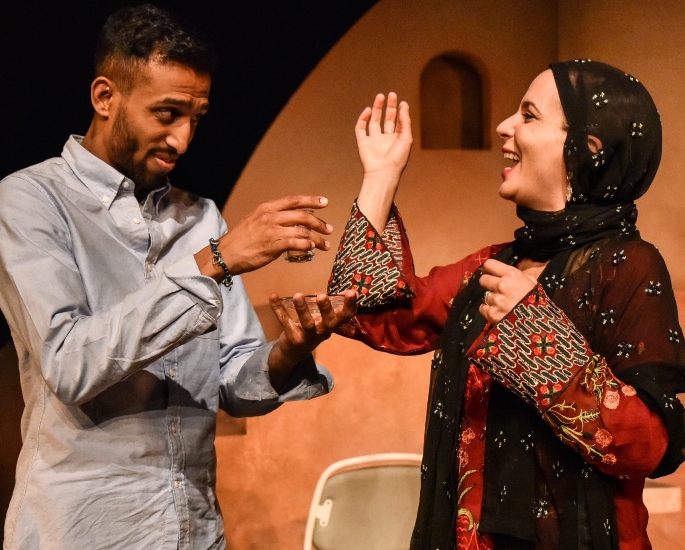
I directed some of Kali’s early plays and readings almost 30 years ago. In particular, working on many occasions with playwright and Kali co-founder Rukhsana Ahmad.
It was very difficult to find many other women who were writing at that time which is why Rukhsana and Rita Wolf co-founded the company.
Fast forward to 2021 and we are supporting 20 playwrights at various stages of their careers to complete work. So yes, things have moved on enormously.
“Kali prides itself on playing a big part in diversifying the theatre and television landscape.”
Particularly with the work undertaken by former Artistic Director Janet Steel who ran Kali Theatre for 14 years until 2016.
Her work was instrumental in forging a community of women artists who believed they could and should take to the stage.
What do you hope viewers will take away from the collection of plays?
I hope audiences find the work inspiring, provocative, engaging, and stimulating.
It’s a chance to understand new perspectives and broaden our worlds.
All these writers have pressing and urgent things to say about life in the UK in 2021.
Why is it important to celebrate diversity within the creative arts?

It’s a human right for everyone to have a voice and to be able to engage with the arts.
We need theatre to remind us of our shared humanity and to remind us of who we are as a collective.
“Widely diverse voices ensure we all get to understand the bigger picture.”
As well as feel empathy and generosity of spirit towards one another. Whilst, also avoiding negative group think for just a starter!
What would you say to aspiring playwrights?
If you are of South Asian descent, female, and over 18 please do send your scripts to the next DISCOVERY programme.
Come and see our work and that of our other New Writing colleagues. Read lots of play texts.
Take a look at the kind of work we’ve been producing over the last 30 years via THIRTY. Our brand new book was published by Methuen and features 30 monologues and duologues from Kali writers.
If you get interested in any play in particular and want the long read, you can find the full plays in our script shop on the Kali Theatre website.
With such passion shown by both Kali Theatre and the writers they represent, the HOME festival is sure to captivate audiences.
With an abundance of talent from the directors, actors, and playwrights, addressing the South Asian perspective is an intriguing topic.
More specifically, the way Desi women deal and overcome challenges that they have been facing for generations.
With historical, economical, and social contexts, the plays dedicate themselves to covering all aspects of the South Asian consciousness.
Then by, delivering these stories in a LIVE depiction, the audience will capture the true feeling and sensitivity of unfamiliar communities.
In addition, the showcase of South Asian writers will undoubtedly influence the next generation of creatives. It also provides a foundation for them to build, learn and grow.
Find out more about the HOME Festival and Kali Theatre here.


